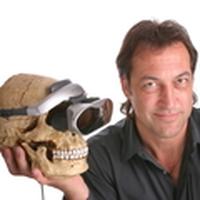
Skip Rizzo
Skip Rizzo is a Clinical Psychologist, and director of the University of Southern California Institute for Creative Technologies (ICT) Medical VR Lab. He is a research professor in both the USC Dept. of Psychiatry and the School of Gerontology. Over the last 30 years, he has conducted research on the design, development and evaluation of VR systems across the domains of psychological, cognitive and motor functioning in healthy and clinical populations. This work has focused on PTSD, TBI, Autism, ADHD, Alzheimer’s disease, stroke, psychedelic therapy, and Suicide Prevention, and other clinical conditions.
Programming descriptions are generated by participants and do not necessarily reflect the opinions of SXSW.